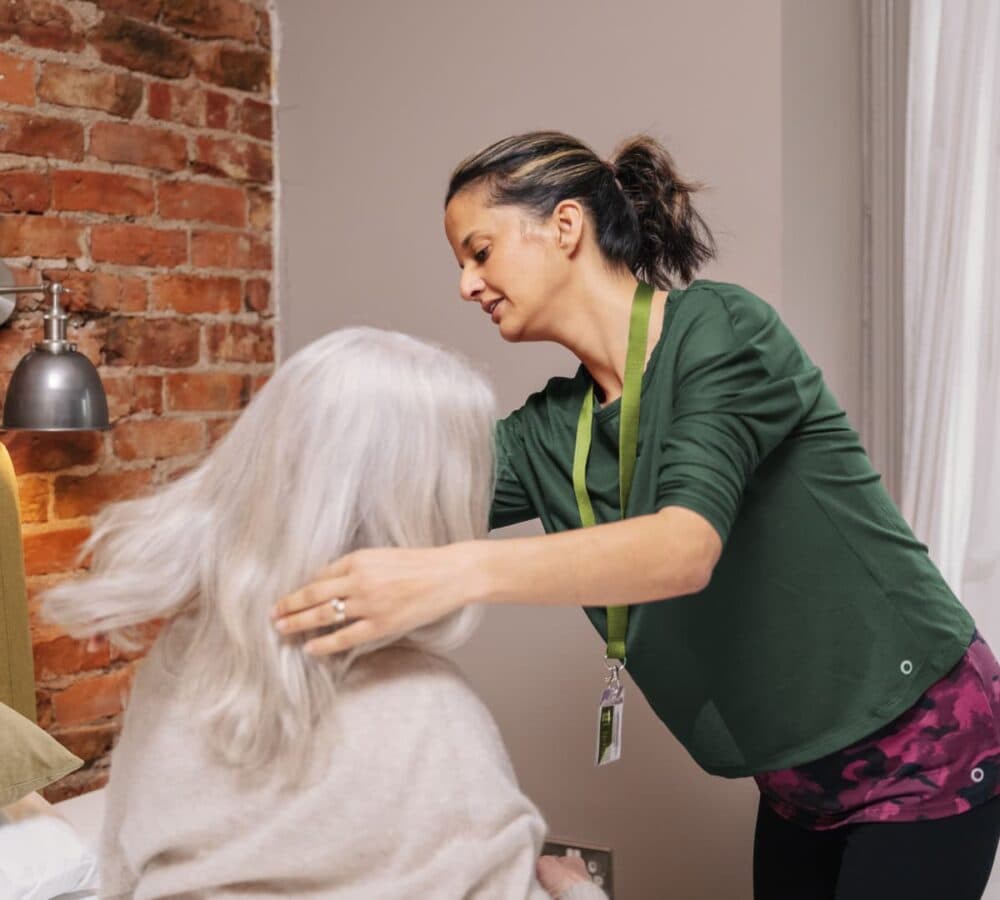Spot the Signs: Could a Loved One Be Struggling with Dementia?

Noticing small changes in a loved one can be unsettling. Perhaps they’ve misplaced something or forgotten how to get home from the shop. You may wonder – is this just part of getting older, or something more serious?
At Home Instead Epping Forest, we understand how difficult these questions can be. That’s why we’re helping families across our community spot the early signs of dementia and feel confident about taking the next step. This May, we’re taking lots of initiatives to tackle dementia awareness and support families in our area.

What to Look Out For
Dementia doesn’t arrive with a flashing neon sign. It often begins quietly, with subtle shifts that are easy to brush off, until they start to add up. Here are some changes that could signal it’s time to check in more deeply:
Memory & Confusion
– Repeating the same questions
– Misplacing items regularly
– Forgetting appointments or important dates
– Getting lost in familiar places
Home & Personal Care
– Decline in hygiene: unwashed clothes, skipped showers
– Untidy or cluttered home that’s usually well kept
– Food going off in the fridge, or meals left uneaten
– Piles of unopened post or unpaid bills
Safety Concerns
– Leaving appliances on
– Not locking doors
– Struggling with stairs or navigating the home
When It's Not "Just Old Age"
We often hear “Mum’s just getting older” or “Dad’s always been forgetful.” But some things go beyond the normal ageing process. Recognising the difference early can prevent accidents, relieve family stress, and allow your loved one to keep living safely at home with the right support.
Here’s a helpful way to think about it:
If you’re spotting multiple small signs that don’t sit right, don’t ignore them. One missed pill or forgotten name might not mean much. But a pattern of changes could mean your loved one needs more help than they’re letting on.

The Spot the Signs Checklist
To support families in Epping Forest, we’ve created a checklist to help you assess how your loved one is managing, including:
Daily Living & Wellbeing
– Are they eating regular, balanced meals?
– Do they remember to take medication?
– Is their mood generally calm and content?
Home & Hygiene
– Is the house clean and safe?
– Are they showering, brushing their teeth and dressing as usual?
Organisation
– Are they responding to messages and staying connected socially?
– Can they locate essentials like glasses, wallets or keys easily?
Safety
– Are they locking doors, turning off appliances and moving around the home without risk?
If you answer “no” to more than a few of these, it might be time to check out our Spot the Signs checklist or even start the conversation about care. That doesn’t mean rushing into decisions; it just means taking a breath and gently exploring how to support their needs.
Talking About It
Starting the conversation is often the hardest part. No one wants to feel like they’re losing their independence, and it’s natural for loved ones to downplay the changes you’re seeing. That’s why we encourage families to approach it with care and compassion:
– Choose the right time: Avoid high-stress moments. A quiet chat over tea works better than springing it on them during a busy day.
– Use “I” language: Say “I’ve noticed…” instead of “You’re always…”
– Focus on your concern, not criticism: Emphasise that you want to help them stay safe, well, and happy.

We’re Here to Help
You’re not alone in this. At Home Instead Epping Forest, we’ve walked this road with many families. Whether it’s companionship visits, dementia-friendly events, or specialist dementia support, our Care Professionals are trained to deliver personalised, respectful care in the comfort of home.
If you’d like a copy of our Spot the Signs checklist or need help starting the care conversation, don’t hesitate to contact us. We’re here to listen, guide and support at whatever pace feels right for you.
Phone: 01992 666777 Email: [email protected]